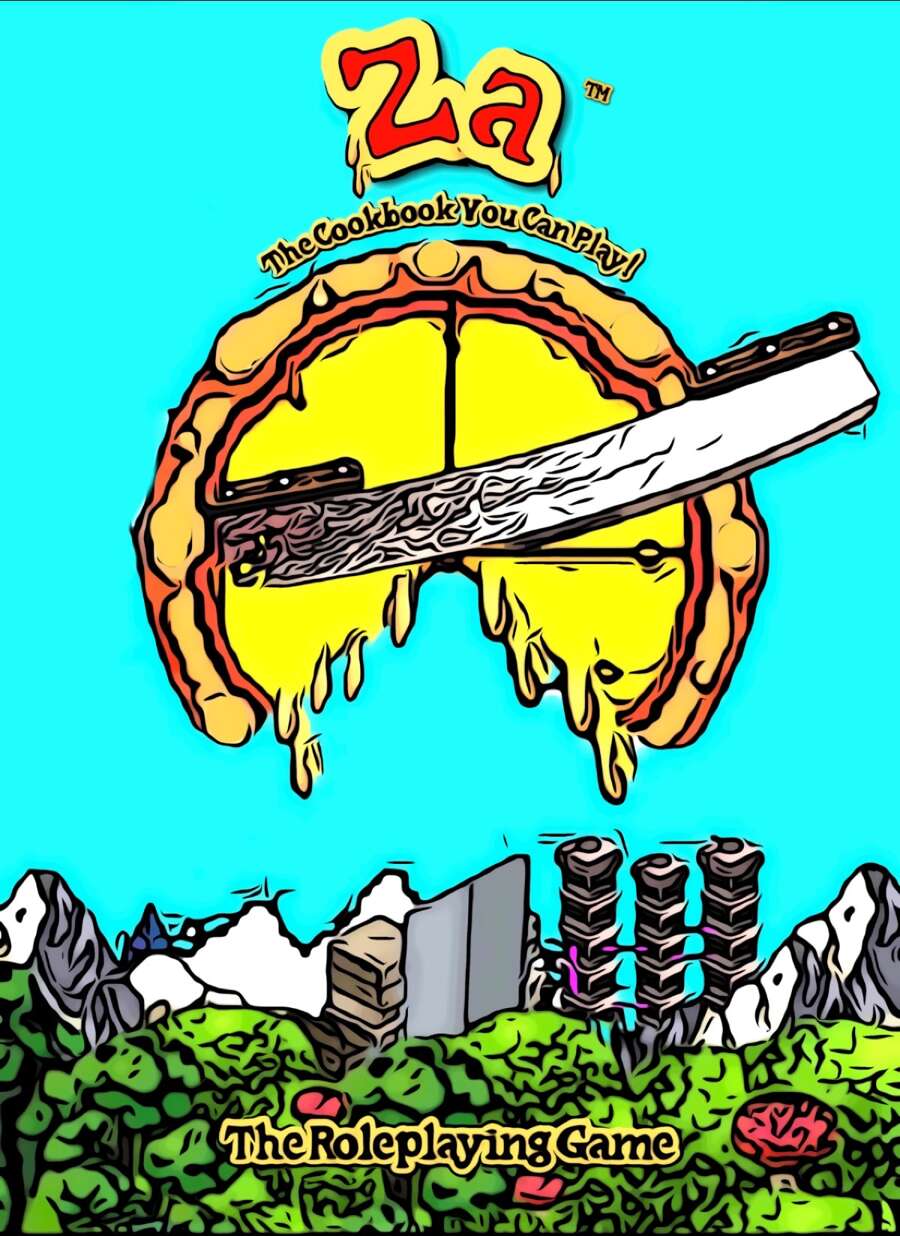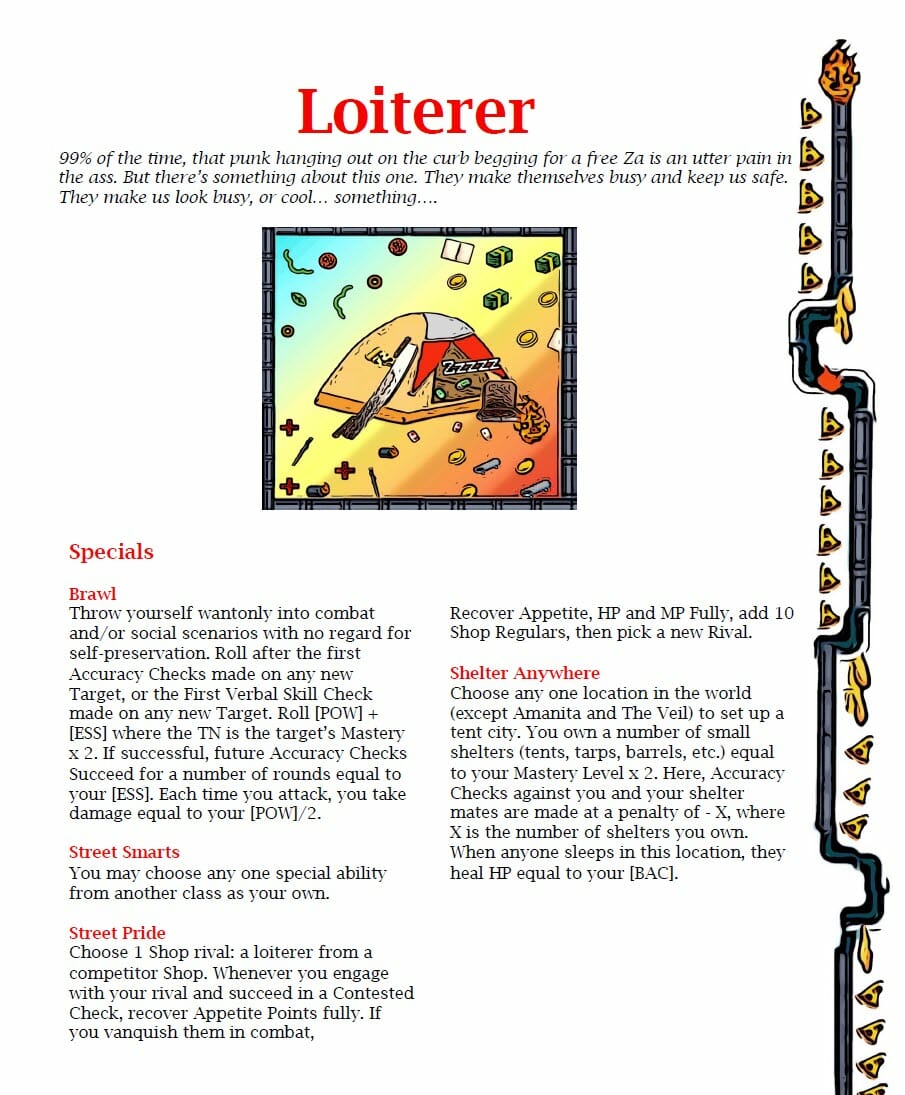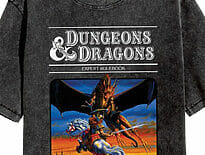I paid $10 for Jim Lampe’s Za. It’s a pizza fantasy of gang warfare.
I don’t need a new RPG, but Za triggered a “What the hell is this?” response. It’s been in my bookmarks since December, and five months later, I succumbed to temptation and bought it. Here’s the review a few weeks later, three one-shots later via Discord.
All three of my playtests got quite dark! I’m not sure what the tone is, there are some suggestions to be lighthearted in some phases, but perhaps my gamer buddies lean into the dark side.
Za play
Za strongly feels Blades in the Dark to me, with gang confrontations.
The game is all about running a successful pizza shop, keeping the customers happy while dealing with malicious reality and meddling from rivals.
There’s also a touch of Ryuutama with the notion of Investors, who can help your pizza store if they’re happy but must be kept happy.
However, Chris McDowell’s Electric Bastionland and the debt angle always became a big focus in my game.
In Za, the Investor sets the game’s tone, creating the starting debt pool. Debitors take action now, whereas Investors are people you can worry about later. Here, it’s all the same, the PCs owe their Investors.
Za mechanics
The basic system uses Contested and Skill Checks, one with the highest roll winning and the other using a target number.
Critical failures in Za are triggered when a player rolls two 1s, and critical successes are when the player rolls the highest value possible on two dice.
Failures aren’t game over, not always. The nonbinary results approach means there’s a cost, which can be tried again in the right circumstances. Failure is about what goes wrong, not that something went wrong.
There is combat in this fantasy world. PCs might have to fight off pizza wolves or rival shop owners, so there’s a whole system. Teenage Mutant Ninja Turtles are another inspiration.
Za look and feel
Za is bold and brash. The art is high impact. I quite liked it, but many players via Discord disliked the white on black, but I wonder whether they had brighter screens than I did.

While illustrations are scarce, Za feels like a professionally formatted RPG that doesn’t skimp on the pictures.
It’s the world-building that’s perhaps the weakest link. I know more about the geography of the world, with its pizza puns and the gangs/pizza franchises, than I do about the people.
Can I play a goblin? A walking pizza? A wizard (magic is real in Za)? I don’t know.
Overall
Za suits experienced gaming groups who can take a well-documented and odd-ball concept and make it work.
Our one-shots always ran over (like Blades in the Dark), but I’m not sure I’d want to offer a campaign. The RPG suits long weekends with friends, especially those nights you order pizzas together.
Jim Lampe has done just fine with Za, yes, it’s quirky, but I liked it! I’m not sure I’ll use it often, but I’ve no regrets. $10 is cheap for pizza.
Quick Links
- Download: Za.



